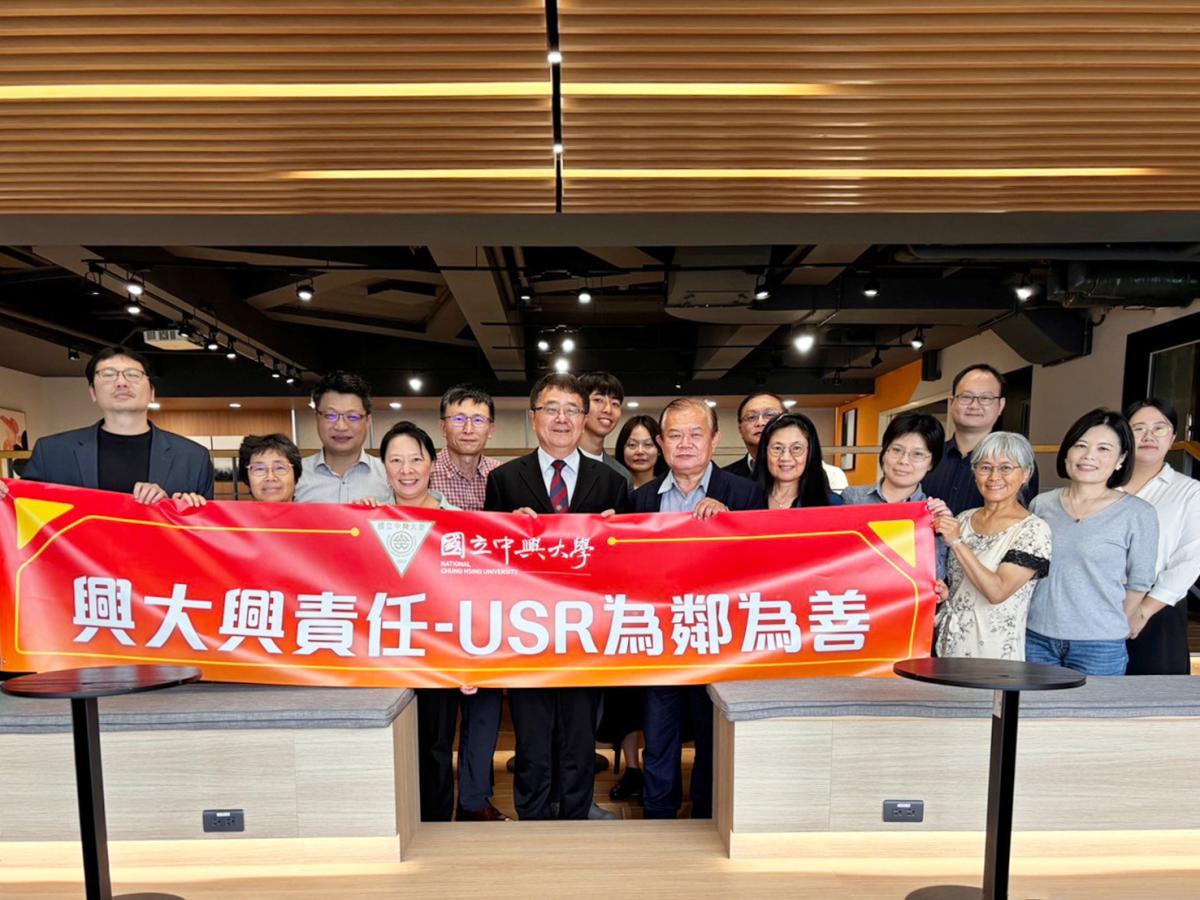【News】NCHU's USR Projects Fully Approved: Advancing University Social Responsibility through Interdisciplinary Collaboration
- Category : Achievement
- Date : 2025-01-09
- views : 1068
On December 31, 2024, the Ministry of Education announced the results of the fourth phase (2025–2027) of the University Social Responsibility (USR) Program.All five projects submitted by National Chung Hsing University (NCHU)—one international collaborative project for sustainable development and four university-centric rooting projects—received approval.
The total funding awarded amounts to NT$21.5 million, reflecting an increase of over NT$10.4 million compared to 2024, a growth rate of 93.7%. This achievement demonstrates NCHU's proactive efforts and significant results in the USR field.
The approved USR projects cover a diverse range of themes, including sustainable development, animal welfare, community building, and ecological restoration.
First, the international collaborative project for sustainable development, titled "Stray LOHAS”: Stray Animals Reduction and Fulfilment of Welfare Project," is led by NCHU President Fuh-Jyh Jan and planned by Associate Professor Shiun-Long Lin from the Department of Veterinary Medicine. Since 2018, the project has undergone three phases of USR implementation, successfully developing an “Educational Training and Veterinary Care-Neutering Module for Underprivileged Animals.” This module has effectively improved the medical care and welfare standards for stray animals. It continues to be adopted by veterinary schools and student organizations in Vietnam, Thailand, and Malaysia, with the aim of enhancing regional animal protection through international collaboration and becoming a driving force for advancing animal welfare in Southeast Asia.
The four university-centric rooting projects are as follows:
1. "Twin Pulses of Green and Dry: United in Water Stewardship" - Two-River Basin Guardian Laboratory
This project, led by Professor Chang-Yen Lee, Director of the Graduate Institute of International Politics Affairs and NCHU’s Chief Secretary, integrates faculty from the College of Law and Politics, College of Liberal Arts, College of Management, and College of Agriculture and Natural Resources.
It focuses on the Green River and Han River basins in Taichung, combining historical preservation, environmental protection, and civic participation to create a sustainable living environment that blends humanity and aesthetics.
2. Co-Learning of Horticultural Therapy at Shuiwei Community
Led by Professor Chen-Fa Wu from the Department of Horticulture, this project integrates horticulture and physical therapy to promote sustainable development in aging communities through horticultural therapy and health promotion.
It aims to create a friendly space for shared living and healthy aging in the Shuiwei community.
3. Starting from Nantou’s Qingliu, Zhongyuan, and Meiyuan tribes to create a healthy and thriving indigenous homeland
This project is led by Vice Dean Pin-Ju Chueh of the College of Medicine, and involves an interdisciplinary team from the Department of Electrical Engineering and the Graduate Institute of Clinical Nursing.
The project integrates health promotion, medical technology, and industrial development to improve the quality of life in rural indigenous communities in Nantou while boosting economic and cultural development.
4. Environmental resilience and sustainability—ecological restoration for one health in forest, river and village
Led by Professor Chiou-Rong Sheue from the Department of Life Sciences, this project collaborates with teams from the International Agribusiness Program and the Department of Soil and Water Conservation.
It focuses on stream restoration in the upstream Wu River through ecological monitoring and habitat improvement, promoting symbiosis among forests, rivers, and communities. This project provides a model for stream restoration efforts in Taiwan.
NCHU’s USR teams have demonstrated the importance of interdisciplinary collaboration across colleges. In the future, the university will continue to integrate education, research, and practice, to create impactful and sustainable outcomes, respond to local and global needs, and contribute further to social progress and environmental sustainability.
